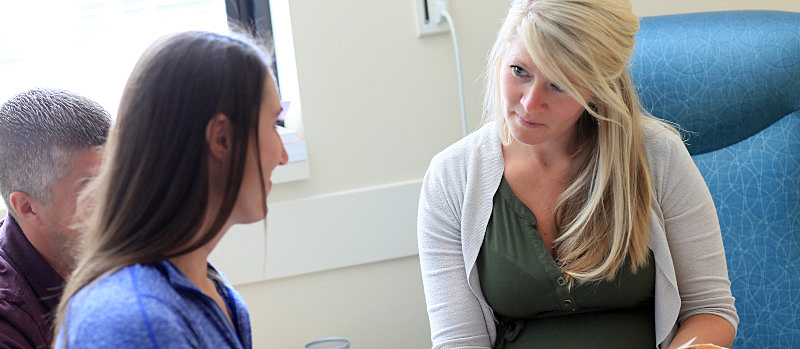I can’t tell just by looking at a newborn if he will have post-birth drug withdrawal. At least not at first. It usually takes 48-72 hours after birth, and sometimes even longer. But once the withdrawal symptoms kick in, I know. Babies born with drug withdrawal, called neonatal abstinence syndrome (NAS), are completely inconsolable. They’re miserable. They have tremors, irritability, increased wakefulness, high-pitched cries, vomiting, diarrhea, dehydration, and in the worst cases, seizures.
It’s the sad reality of today’s prescription drug abuse epidemic.
A common misconception is that babies born with drug withdrawal come from mothers with illegal drug abuse problems. Sure, they’re a part of this equation– but they’re not the majority. Of the drug screening we’ve done on Ohio mothers whose babies have NAS, 75% of the mothers testing positive for drugs were using prescription opioids, like Percocet and Vicodin – NOT illegal street drugs. This issue is not isolated to Cincinnati or even Ohio. It’s a nation-wide trend.
This problem – babies born with drug withdrawal – has a direct correlation to the five-fold increase in prescription opioids, or pain-killers, distributed across the country in the last 10 years. In fact, enough prescription opioids were prescribed in 2010 to medicate every American adult around-the-clock for a month.
Now every hour one baby is born suffering from opiate withdrawal across the United States.
We can do better for the next generation. But how? In Ohio, six free-standing children’s hospitals, including Cincinnati Children’s, have received funding from the Governor’s office to conduct research and determine the best treatment protocols.
In Cincinnati, we’ve established a task force made up of the Perinatal Institute and all of the regional birthing hospitals. Not only are we setting out to standardize treatment for these babies, we’re also trying to figure out through drug screening which ones are at-risk for delayed withdrawal symptoms.
This drug screening is a very timely and important step. Most babies with drug withdrawal don’t start having symptoms until 48-72 hours after birth (and sometimes even longer). So it’s possible for a baby to be discharged, sent home and then have withdrawal symptoms. We want to avoid that scenario. Because babies with drug withdrawal feel miserable and will likely require special medical attention, they’re incredibly difficult to care for. Plus 60% of them will need pharmacologic treatment to help manage their withdrawal symptoms. Our goal is to detect which babies will have these symptoms early and keep them for observation and treatment if necessary.
This is our approach to neonatal abstinence syndrome in Cincinnati, once we’re aware of the baby’s drug withdrawal. But what about preventing it from happening in the first place? The solution has a seemingly simple answer with not-so-easy implementation:
- If you’re thinking about becoming pregnant, talk to your doctor about tapering off of pain killers before conceiving.
- Doctors, be aware of how often you’re prescribing pain-killers, and be thoughtful about how long your patients have been on them.
Awareness of this problem is our best defense in stopping it from happening in the future. Please help me spread the word by sharing this post with your families, friends, and colleagues.





